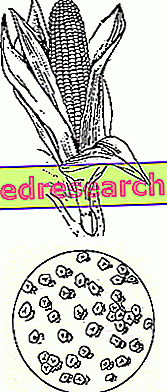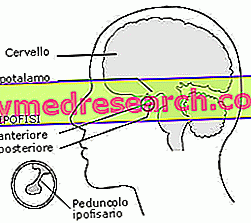Definition
The term "thalassemia" refers to a serious genetic disease in which the body synthesizes an abnormal form of hemoglobin, responsible for the progressive destruction of red blood cells. Severe thalassemia ( major variant) may be fatal to the fetus (death looms before birth, or immediately thereafter), while the minor form tends to manifest symptoms more slowly (after 2 years from birth).
Causes
Thalassemia is the result of a genetic anomaly: hemoglobin is composed of two proteins, alpha-globulin and beta globulin, consisting of 4 and 2 globular sub-units, respectively. Each globular sub-unit is encoded by a gene, therefore the mutation of one or more genes creates the damage, therefore the synthesis of a defective hemoglobin.
Symptoms
The major variant of thalassemia causes immediate damage, leading the fetus to death before delivery or immediately afterwards. The form minor is characterized, instead, by a very accentuated form of anemia, accompanied by fatigue, mood alteration (irritability), growth deficit, deformity of facial bones, jaundice, shortness of breath and dark urine.
- Complications: increased risk of bone breaks and infections, bone deformities, hemochromatosis, fragility of bone mass, splenomegaly
Information on thalassemia - drugs for the treatment of thalassemia is not intended to replace the direct relationship between health professional and patient. Always consult your doctor and / or specialist before taking Thalassemia - Thalassemia Treatment Drugs.
drugs
Currently, there is no effective drug or alternative treatment for the treatment of thalassemia, given that we are talking about a genetically transmitted disease; however, researchers focus on improving the quality of life of patients suffering from thalassemia, seeking a remedy to mitigate symptoms as much as possible and slow down the inexorable progression of the disease.
However, it should be emphasized that some affected patients do not complain of symptoms: the mutation of only one gene is observed in healthy and healthy carriers, often insufficient to trigger a precise thalassemia symptomatology. However, these patients must undergo periodic medical checks in order to intervene promptly if the disease generates disorders over the years; although pharmacological treatments for thalassemia minor patients are not normally necessary, blood transfusions can be useful on some occasions, such as childbirth and surgery.
However, remember that a healthy carrier can transmit the disease to the offspring.
Different discourse must be addressed for the medium or severe forms of thalassemia, therefore those in which the genetic mutation involves more genes; blood transfusions constitute the most immediate therapeutic approach to cancel, albeit temporarily, the symptoms of thalassemia. Nevertheless, this remedy is not without side effects: frequent blood transfusions can predispose the patient to an accumulation of iron in the blood, up to hemochromatosis. This consequence requires an immediate therapeutic intervention, aimed at eliminating iron storage.
When thalassemia is responsible for serious dysfunction of the organism, the most effective alternative therapeutic strategy turns out to be bone marrow transplantation.
THERE IS NO MEDICINE FOR THE TREATMENT OF THALASSEMIA: the following medical remedies and therapeutic strategies aim to reduce symptoms and improve the patient's quality of life.
Medications for the treatment of hemochromatosis : the accumulation of iron in the blood is one of the most immediate consequences deriving from the frequent blood transfusions, which a thalassemia patient needs. To cope with hemochromatosis, the doctor generally proposes a therapy with chelating drugs, able, therefore, to sequester the iron accumulated in the blood and to eliminate it through urination. The following are the active ingredients most used in therapy and the pharmacological specialties available on the market.
- Desferrioxamine (eg Desferal): drug of choice for the treatment of iron accumulation in the context of thalassemia
- Deferasirox (ex. Exjade): drug not available in Italy
- Deferiprone (eg Ferriprox): to be taken in case of allergy / intolerance to Desferrioxamine
For the dosage: read the article on drugs for the treatment of hemochromatosis
Chelation therapy is recommended to supplement Vitamin C supplementation (eg Redoxon, Cebion, Cimille, Univit, C Tard, Agruvit, Univit, Duo C): the accumulation of iron in the blood, in fact, produces a deficit of ascorbic acid, since the mineral tends to oxidize vitamin C. According to this, it seems that vitamin C supplementation in patients suffering from hemochromatosis in the context of thalassemia is essential to increase and favor the elimination of accumulated iron.
Ascorbic acid therapy should begin one month after starting chelation therapy.
Dosage: for children under the age of 10 suffering from thalassemia and hemochromatosis. take 50 mg of the drug a day. For thalassemia adults, double the daily dose of medication.
Medications for the treatment of splenomegaly : the enlargement of the spleen is a symptom common to many thalassemia patients. Among the most reliable solutions to solve this problem, the removal of the spleen (splenectomy), always associated with vaccination, before and after the intervention, stands out.
For further information: read the article on drugs for the treatment of splenomegaly
Innovative drugs and hopes for the treatment of thalassemia
Science is mobilizing with giant steps towards a cure (or an attempt at therapy) for thalassemia. Some researchers have ventured to speak of "pharmacological induction of the gamma gene", consisting of the stimulation of HbF (fetal hemoglobin) with a cytotoxic drug (5-azaticidina, eg Vidaza). Hypothesis of first glance, which soon reveals a defeat due to the high carcinogenic power of the substance.
To replace this powerful drug, another molecule was hypothesized, hydroxyurea, having a lower toxicity than the previous one: tested in humans, this drug seems able to reduce, albeit moderately, the frequency of thalassemic crises.



